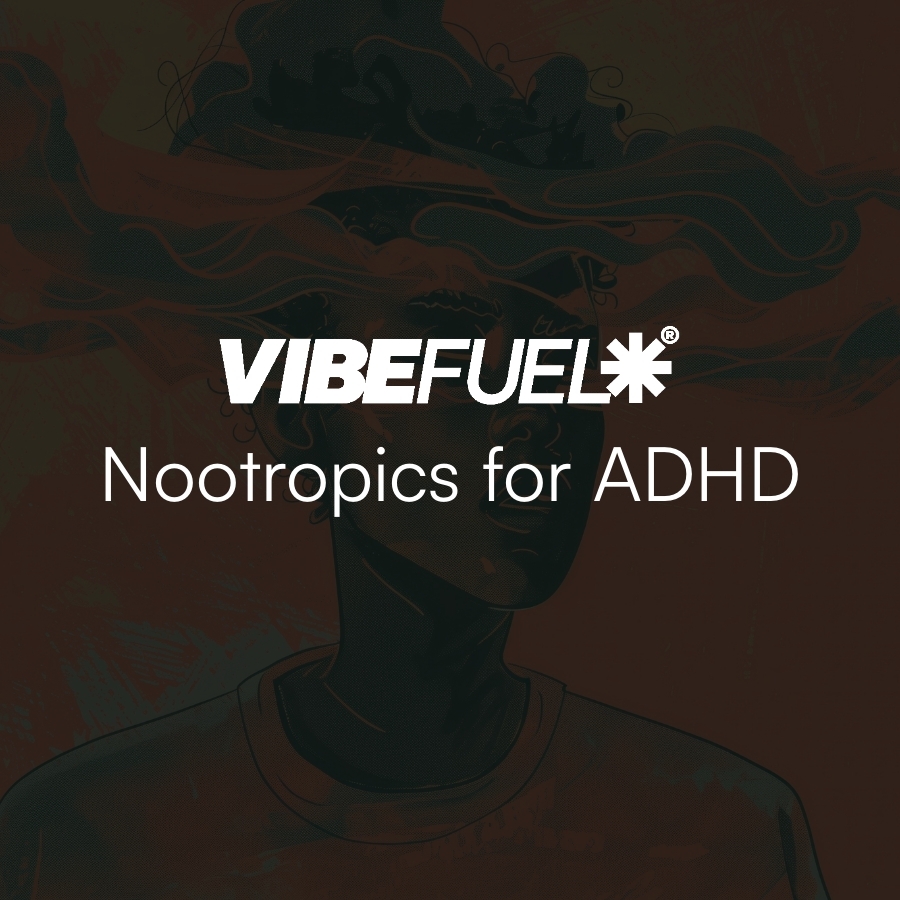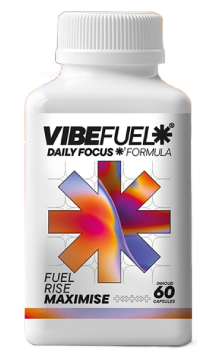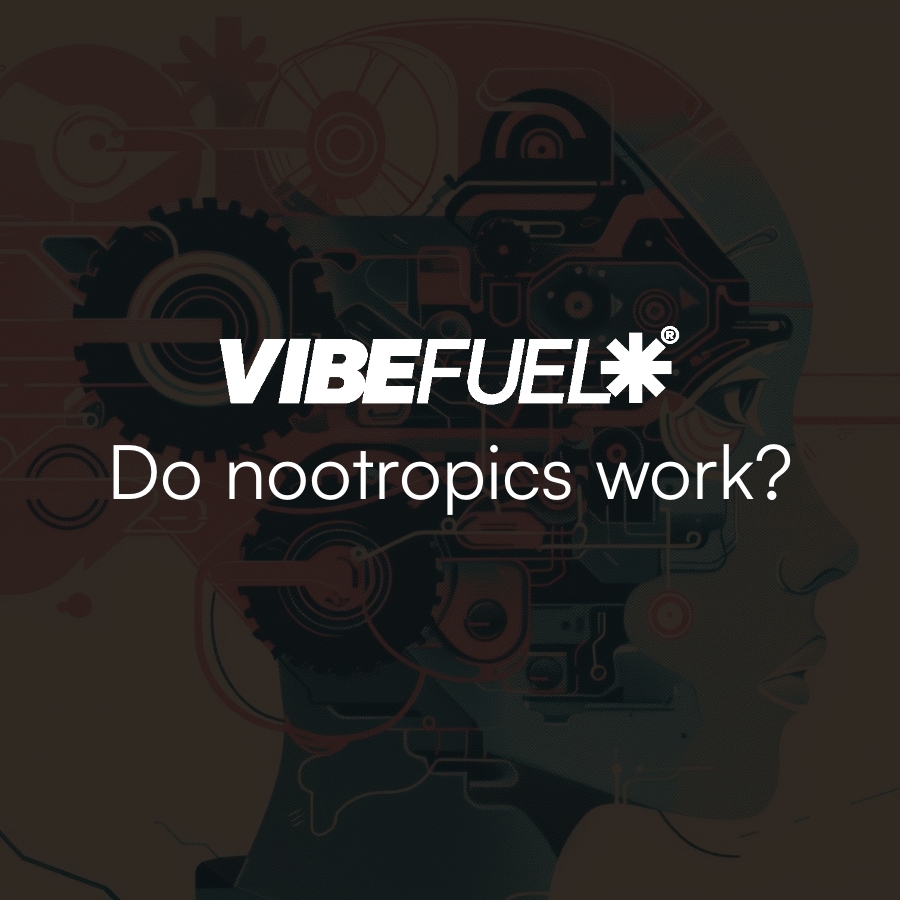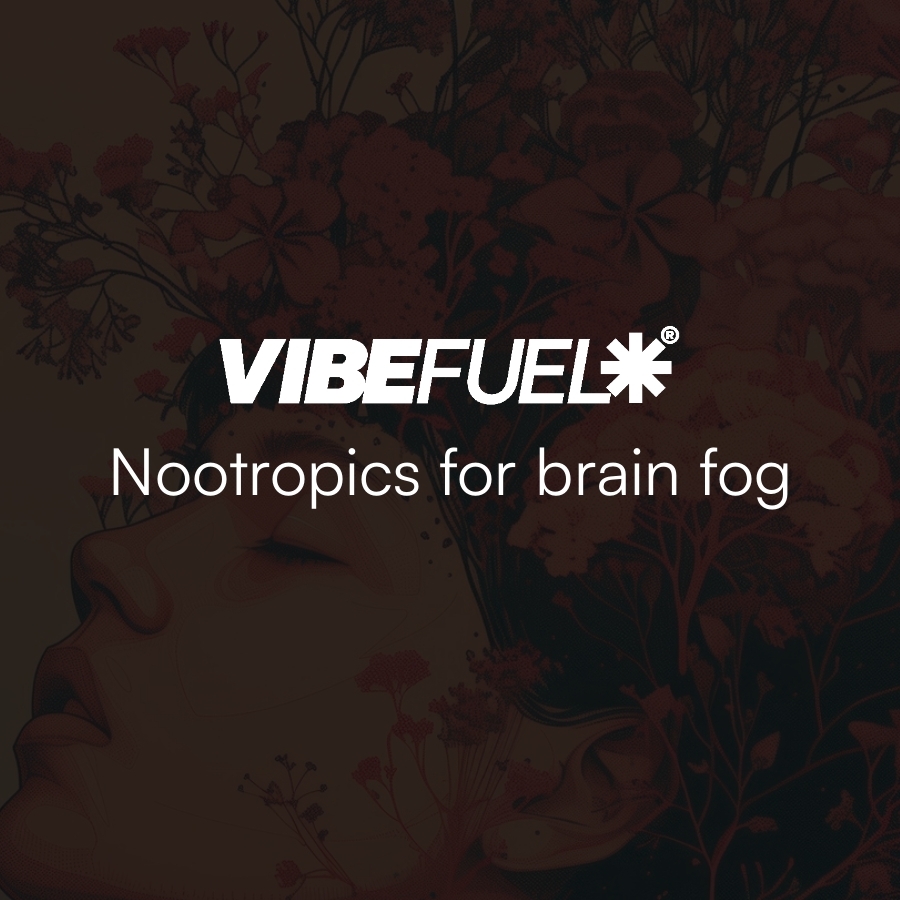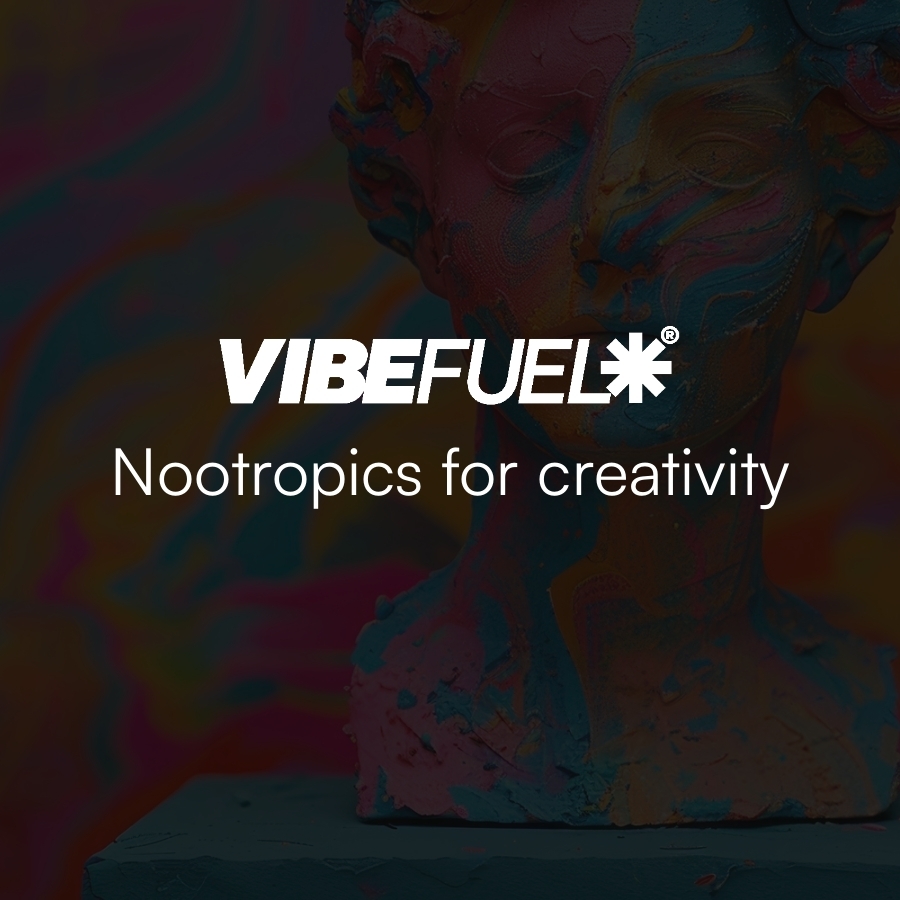Are you struggling with ADHD and looking for ways to boost focus and cognitive function? Nootropic ADHD solutions, also known as cognitive enhancers, might offer a promising solution. This article explores how a nootropic can help manage ADHD symptoms, the types available, and what you should know before using them.
Key Takeaways
- ADHD is a genetic mental health disorder marked by inattention, hyperactivity, and impulsivity, significantly affecting focus, memory, and executive functions due to neurological and structural brain differences.
- Nootropics, including both natural and over-the-counter options, offer potential benefits for cognitive enhancement and managing ADHD symptoms, though their effectiveness varies and they carry health risks.
- Integrating natural supplements like Bacopa Monnieri, Rhodiola Rosea, and Ginkgo Biloba, and essential vitamins and minerals, can support ADHD management by improving cognitive functions such as focus, memory, and attention span, under the guidance of healthcare professionals.
Understanding ADHD and Its Impact on Cognitive Function
ADHD goes beyond being just a difficulty in staying on task; it’s a genetic mental health problem that deeply affects all areas of cognitive function. At its core, attention deficit hyperactivity disorder is a symphony of inattention and hyperactivity, with impulsivity as its crescendo. The experience is akin to trying to listen to a melody while numerous other tunes play in the background. This cacophony of distractions affects essential cognitive functions—focus, memory, executive function—all facets of the mind that are crucial for navigating daily life. An ADHD diagnosis can help individuals better understand and manage these challenges.
The problem is not a lack of effort, but rather an inability to regulate the attention span, which results in decisions and actions that may appear impulsive but are actually due to a lack of control. The brain’s neural network, particularly in areas responsible for attention and impulse control, functions differently in those with ADHD. Imagine neurotransmitters like dopamine and noradrenaline as messengers that have lost their way, contributing to the trademark symptoms of ADHD due to their abnormally low levels in critical regions of the brain.
This neurological underpinning is not merely functional but structural as well. Studies have revealed that individuals with ADHD often have variations in brain anatomy, including diminished gray matter density and a reduction in overall brain volume. These physical and functional anomalies are not just numbers on a page; they manifest as underactive or overactive networks within the brain, altering the very landscape of cognitive processing. The prefrontal cortex, the conductor of alertness and attention span, often operates at a reduced capacity, shortening attention spans and weakening working memory.
Beyond dopamine, the complexity of ADHD extends to a whole ensemble of neurotransmitters—norepinephrine, epinephrine, serotonin, glutamate, GABA—all of which can be imbalanced, contributing to the disorder’s diverse symptoms. Adults with ADHD might face the additional challenge of lower glutamate levels, which can intensify the fog that clouds their cognitive clarity. It’s a delicate balance, one that traditional ADHD treatments aim to correct, but the quest for enhanced cognitive function has led many to consider an alternative route: nootropics.
What Are Nootropics?
Nootropics present a promising alternative for cognitive enhancement – a group of substances believed to enhance mental performance and strengthen memory, learning, and even creativity. Coined by Corneliu Giurgea in 1964, the term ‘nootropics’ has become synonymous with the pursuit of heightened brain function. These smart drugs or brain boosters encompass a vast array of substances, from over-the-counter synthetic supplements to natural remedies that promise to fortify the mind’s capabilities.
Nootropics are not a one-size-fits-all solution. They can be categorized into various types, including eugeroics, ADHD medications, and nootropic supplements, each with its unique mechanism for boosting brain function. While some healthy individuals may dabble in nootropics to gain an edge in cognitive performance, it’s essential to tread lightly, as the effectiveness of these substances can be modest, and their use is not without health risks.
For those looking for a less risky path to cognitive enhancement, alternatives exist. Supplements like certain B vitamins, fish oil, and herbal supplements such as Ginkgo biloba may offer a gentler bolster to brain health. Yet, it’s important to recognize that even these natural nootropics can have potent effects, with some raising adrenaline levels to an extent comparable to a hefty caffeine intake.
Despite their appeal, it’s vital to approach nootropics judiciously, given the complex and constantly changing landscape of cognitive enhancers.
How Nootropics Can Help Manage ADHD Symptom
Nootropics, or cognitive enhancers, have emerged as a promising option for individuals trying to manage the turbulent waves of ADHD symptoms. These brain-boosting supplements offer a glimmer of hope for improving attention and cognitive function, though they are not intended to replace traditional ADHD treatments. Some individuals turn to nootropics to navigate through the fog of inattention and hyperactivity, employing them as a complementary tool to traditional ADHD therapies.
These supplements are seen as a supportive therapy, nourishing the brain and optimizing its function naturally. They wield the power to enhance focus, attention, and impulse control by increasing neurotransmitter levels, fostering neuroplasticity, and bolstering brain connectivity. For those with attention deficit disorder, nootropics have the potential to revitalize brain activity, enriching thought processes and mental stamina.
Studies are currently being conducted to evaluate the effectiveness and safety of different nootropics for treating symptoms of ADHD, as interest in this area continues to increase. While more research is needed to solidify these findings, the current body of evidence suggests that nootropics may indeed offer a viable path to cognitive enhancement. When properly utilized, some nootropics can not only boost brain performance but also promote relaxation and mental clarity, supporting the intricate web of dopamine, brain energy, and optimal circulation within the brain. Some potential benefits of using nootropics for ADHD include:
- Improved focus and attention
- Enhanced memory and learning abilities
- Increased motivation and drive
- Reduced impulsivity and hyperactivity
It is important to note that the use of nootropics for ADHD should be done under the guidance of a healthcare professional, as individual responses and potential side effects can vary.
The potential of cognitive enhancers to alleviate ADHD-related brain fog and enhance mental performance has struck a chord with many, including both ADHD patients and researchers. As the scientific community delves deeper into the potential of these substances, they remain a topic of intrigue and hope for those seeking to reclaim control over their cognitive landscape.
Natural Nootropics for ADHD
ADHD management is not confined to prescription drugs; a wealth of natural nootropics exists, offering potential cognitive benefits. Herbs such as Bacopa Monnieri, Rhodiola Rosea, and Ginkgo Biloba have garnered attention for their potential to improve mental clarity and cognitive abilities in those grappling with attention deficit hyperactivity disorders. These natural allies offer a gentler approach to modulating the brain’s function, a contrast to the intense symphony of pharmaceutical options.
Bacopa Monnieri
Bacopa Monnieri, also known as Brahmi, is an herb steeped in a rich history of traditional use, now recognized for its potential as a natural nootropic. It’s a beacon of hope for cognitive enhancement, with studies indicating improvements in:
- cognition
- verbal learning
- memory retention
- reduction in anxiety
This herb’s dual ability to sharpen the mind and regulate the stress response makes it a standout candidate for individuals looking to enhance cognitive function while maintaining a sense of calm.
Bacopa Monnieri has also been studied in younger populations, including children with ADHD. While the findings are promising, it is paramount to navigate this path with caution and under the guidance of a healthcare professional, especially when considering its use for children. The herb’s multifaceted actions on the brain showcase the potential of natural substances to contribute meaningfully to the management of ADHD symptoms.
With its adaptogenic and nootropic properties, Bacopa Monnieri offers potential alternatives or supplemental options for enhancing cognitive performance. It serves as a testament to the power of nature’s bounty in supporting brain health and managing the complex array of ADHD symptoms.
Rhodiola Rosea
Rhodiola Rosea, an adaptogen herb, emerges from the rugged landscapes of cold regions as a natural ally in the fight against mental fatigue. Renowned for its ability to help the body adapt to stress, this herb is a beacon of resilience for the mind. It’s not just about withstanding the storm; Rhodiola Rosea has been shown to effectively:
- Reduce mental fatigue
- Improve cognitive function
- Increase energy levels
- Enhance mood
This makes it a valuable supplement for individuals with ADHD who often endure cognitive exhaustion.
The effects of Rhodiola Rosea extend beyond mere stress resistance. By diminishing mental fatigue, it paves the way for enhanced mental clarity and focus, offering a potential boon for managing ADHD symptoms. Its influence on brain function is further evidenced by research pointing to improvements in cognitive performance, memory, and learning capabilities—all areas that can be particularly challenging for those with ADHD.
In the quest for natural cognitive enhancers, Rhodiola Rosea stands as a testament to the power of herbal supplements. Its adaptogenic properties not only bolster mental health but also promise to enhance the cognitive arsenal of those seeking to navigate the complexities of ADHD with greater ease and clarity.
Ginkgo Biloba
Ginkgo Biloba, an ancient tree with a legacy spanning millennia, presents its leaves as a source of cognitive rejuvenation. This herbal supplement is celebrated for its role in maintaining healthy brain blood flow and extending attention spans, making it an attractive option for those with ADHD. Its effects are not singular; often used in tandem with Ginseng, Ginkgo Biloba’s influence on blood flow and neurotransmitter function is a harmonious blend that enhances overall brain health.
The cognitive benefits of Ginkgo Biloba are rooted in its ability to support blood circulation within the brain, which is crucial for attention and mental performance. By fostering a nourishing environment for brain cells, it aids in the maintenance of cognitive functions that are often compromised in individuals with ADHD. The result is not just a momentary lift in mental energy; it’s an enduring enhancement that supports overall brain function, offering a beacon of hope for those seeking alternative therapies.
Ginkgo Biloba’s long-standing use in herbal medicine and recent embrace by modern science underscores its potential as a natural cognitive enhancer. Its ability to aid in the battle against mental fatigue and sharpen focus positions it as a valuable ally in the management of ADHD symptoms. As we continue to explore the intersection of nature and neuroscience, Ginkgo Biloba remains a symbol of the enduring quest for improved cognitive health.
Over-the-Counter Nootropic Supplements for ADHD
The pursuit of cognitive enhancement doesn’t always necessitate a doctor’s prescription. Over-the-counter (OTC) nootropic supplements offer a galaxy of options for those seeking to manage ADHD symptoms. Some popular OTC nootropic supplements include:
- L-Theanine
- Omega-3 fatty acids
- L-Tyrosine
- Piracetam
- Ginseng
Each of these supplements has its unique potential to boost healthy brain function. However, their efficacy is not uniform across all individuals, making personal experimentation and medical guidance essential components of the journey.
L-Theanine, an amino acid found in green tea, is known for its calming effects on the brain, raising alpha waves and offering a potential reduction in hyperactivity and impulsivity. Omega-3 fatty acids, essential for brain health, have demonstrated a small but significant improvement in ADHD symptoms through supplementation, with higher doses of EPA showing a strong association with symptom reduction.
For those facing the pressure of ADHD’s cognitive demands, the following nootropics can be beneficial:
- L-Tyrosine: Provides a building block for neurotransmitters like norepinephrine and dopamine, believed to elevate brain function and enhance working memory.
- Piracetam: Improves blood flow to the brain and synaptic plasticity, therefore amplifying concentration and energy.
- Ginseng: Stands out for its impact on mental energy and the precision of attention-related tasks, a vital attribute for ADHD patients.
Not all OTC nootropic supplements are created equal, and some, like Brillia, offer a gentler alternative to stimulant medications for managing ADHD symptoms without the risk of severe side effects. Oxiracetam and Alpha-GPC have also entered the fray, with small studies indicating potential improvements in attention and focus, though more research is needed to confirm these findings. As the nootropic landscape continues to expand, it’s paramount to navigate this terrain with caution and under the watchful eye of healthcare professionals.
Prescription Nootropics for ADHD Treatment
In managing ADHD symptoms, prescription nootropics are a cornerstone of the medical community’s toolkit. Unlike their OTC counterparts, these pharmaceutical drugs, including methylphenidate and modafinil, have received the FDA’s blessing for treating ADHD. They are not to be taken lightly, requiring the vigilant oversight of medical professionals due to their potent effects and the need for accurate dosing.
Methylphenidate, known to many by its brand names Ritalin and Concerta, has long been a cornerstone of ADHD treatment. Modafinil, marketed as Provigil, joins the ranks as another approved nootropic for ADHD, particularly noted for its ability to heighten focus and curb impulsivity without the sedation often associated with other medications.
However, one cannot overlook the potential side effects that accompany these powerful prescription medications. Insomnia, increased heart rate, and the possibility of dependency are just a few of the considerations that underscore the importance of medical guidance when using prescription nootropics to treat ADHD. These treatments, while effective, are not a simple solution; they require a careful and considered approach to ensure the safety and well-being of the patient.
As we consider the options for ADHD treatment, prescription nootropics continue to be a key part of the discussion. Their proven efficacy and safety profile, when administered under medical supervision, provide a beacon of hope for many patients seeking to manage their symptoms and enhance cognitive function.
Comparing Nootropics and Stimulant Medications
When considering ADHD treatments, it’s important to understand the key differences between nootropics and traditional stimulant medications. Stimulant drugs like Adderall work by elevating dopamine and norepinephrine levels in the brain to enhance attention and regulate impulse control. In contrast, nootropics may improve cerebral blood flow, supporting oxygen usage and potentially cognitive function. While both aim to enhance cognitive performance, their mechanisms of action diverge.
Stimulants are often the first-line treatment for ADHD, given their established effectiveness in symptom management. However, the more severe side effects associated with stimulants, such as rapid heart rate and mood swings, drive some to seek alternative treatments. Nootropics, while diverse in their effects, do not mirror the capabilities of a powerful stimulant like Adderall. They are instead a collection of over-the-counter supplements thought to improve cognitive function through various pathways. Some common nootropics include:
- Caffeine
- L-theanine
- Bacopa monnieri
- Rhodiola rosea
- Ginkgo biloba
- Omega-3 fatty acids
It’s important to note that the effectiveness of nootropics in treating ADHD symptoms is still being studied, and individual results may vary. It’s always best to consult with a healthcare professional before starting any new treatment.
The comparison extends to non-stimulant ADHD medications, which also target brain chemicals but tend to work slower and are usually prescribed when stimulants are not suitable. Smart drugs typically refer to prescription drugs, especially stimulants, while nootropics are more often associated with natural supplements. Reviews on the effectiveness of Thesis nootropics for ADHD are mixed, with some individuals reporting short-term benefits and others experiencing minimal effects.
Understanding the nuances between these two approaches to ADHD treatment is vital for making informed decisions. While nootropics may offer a gentler, and sometimes less effective, route to cognitive enhancement, stimulant medications remain the robust, traditional method for managing ADHD symptoms. The choice between the two should be made in consultation with healthcare professionals, considering the individual’s unique needs and health profile.
Vitamins and Minerals That Support ADHD Treatment
In addition to nootropics and medications, vitamins and minerals offer a fundamental approach to supporting ADHD treatment. Essential nutrients like:
- Vitamin B6
- Magnesium
- Vitamin D
- Zinc
- Iron
have been identified as key players in improving focus, attention, and overall cognitive function. These dietary supplements can complement ADHD treatments, offering a holistic strategy to enhance brain health.
Vitamin B6, for example, is integral to the production of neurotransmitters such as dopamine, which is critical for attention regulation. Its calming effect on the nervous system is especially beneficial for younger populations with ADHD, providing a subtle but impactful boost to cognitive function. Magnesium L-Threonate is another nutrient that has demonstrated improvements in cognitive functions, which can be particularly beneficial for individuals with ADHD.
Iron supplementation in young children has led to a notable reduction in ADHD symptoms, highlighting the importance of this mineral in managing the condition. Zinc’s role in regulating dopamine and norepinephrine neurotransmission is critical for cognitive function and attention, providing a vital link between nutrient intake and symptom management.
Vitamin D’s positive impact on cognitive performance and the combination therapy of Vitamin D and magnesium improving behavioral function and mental health in children with ADHD further illustrate the potential of vitamins and minerals in the treatment landscape. A multivitamin containing these specific dietary supplements may help improve cognition and concentration by enhancing overall brain health.
Incorporating these vitamins and minerals into the diet, whether through food sources or supplementation, is an essential aspect of a comprehensive ADHD treatment plan. Clinical studies have linked low levels of essential nutrients to attention problems, indicating the importance of maintaining adequate nutrient levels for optimal cognitive health. As part of an integrative approach to managing ADHD, these nutrients stand as vital components in the quest to support and improve cognitive function.
Potential Risks and Considerations
Starting on the path of using nootropics for ADHD treatment requires a thoughtful approach, with consideration of the potential risks and implications involved in their use. The FDA’s regulation of nootropic supplements is less stringent than that of prescription drugs, which raises important questions about their safety and efficacy. Extensive clinical trials have not been conducted on many nootropic supplements, leaving gaps in our understanding of their long-term effects.
Side effects of nootropics can range from mild to severe, including insomnia, high blood pressure, and a rapid heart rate, which necessitates caution and medical supervision when using these substances. There is also the risk of developing a tolerance to nootropics, where increasing dosages are required to achieve the same cognitive effects, potentially leading to adverse outcomes.
Some individuals may experience abdominal cramping, nausea, and diarrhea, which underscores the importance of starting with low doses and monitoring the body’s response. Furthermore, combining multiple nootropic supplements may be inadvisable due to the limited research on their interactions and the complex nature of human cognition. Nootropics may not produce immediate effects and should always be taken under medical guidance to ensure they are safe for individuals with certain health conditions.
It’s critical to engage in an open dialogue with healthcare professionals before introducing nootropics into an ADHD treatment regimen. Doctors can provide valuable insights into:
- whether nootropics are a suitable option
- recommend the safest and most effective types
- check for underlying medical conditions that may be influencing concentration or memory issues
The decision to use nootropics should never be taken lightly, as their impact on brain health and function is significant and multifaceted.
Summary
As we conclude our exploration of nootropics and their role in ADHD treatment, it’s clear that these cognitive enhancers offer a diverse array of options for managing symptoms. From natural herbs like Bacopa Monnieri, Rhodiola Rosea, and Ginkgo Biloba to over-the-counter supplements and prescription medications, nootropics present a compelling alternative to traditional ADHD treatments. The potential of vitamins and minerals to support ADHD management further broadens the spectrum of strategies available to those seeking cognitive enhancement.
Nevertheless, the journey to improved cognitive function through nootropics is not without its challenges. Potential risks, a lack of extensive clinical trials, and the need for careful consideration of side effects and interactions underscore the importance of consulting with healthcare professionals. As individuals navigate the vast landscape of cognitive enhancers, a personalized approach that balances efficacy with safety will ensure that nootropics serve as a beneficial addition to ADHD treatment plans. The pursuit of mental clarity and enhanced focus is a noble one, and with the right guidance, nootropics can play a meaningful role in achieving these goals.
Frequently Asked Questions
What exactly are nootropics, and how do they differ from ADHD medications?
Nootropics are substances claiming to improve cognitive functions, while ADHD medications are prescription drugs specifically targeting ADHD symptoms. Nootropics differ from ADHD medications in their mechanisms of action and are not FDA-approved for ADHD treatment.
Can natural nootropics like Bacopa Monnieri and Rhodiola Rosea really help with ADHD symptoms?
Yes, natural nootropics like Bacopa Monnieri and Rhodiola Rosea have shown potential in improving cognitive performance and reducing ADHD symptoms. However, it’s important to consult with a healthcare provider before using them, especially for children.
Are over-the-counter nootropic supplements safe to use for ADHD?
It’s important to discuss the use of over-the-counter nootropic supplements with a healthcare professional before using them for ADHD, as their safety and efficacy are less established compared to prescription medications. Consultation with a professional can help understand potential risks and interactions with other medications.
What role do vitamins and minerals play in ADHD treatment?
Vitamins and minerals like Vitamin B6, Magnesium, Vitamin D, zinc, and Iron are crucial for brain health and have been proven to support ADHD treatment by enhancing focus, attention, and cognitive function. They are valuable components of a holistic ADHD treatment plan when combined with other therapies.
What should I consider before starting nootropics for ADHD?
Consider potential risks and consult with a healthcare professional before starting nootropics for ADHD to determine if they are appropriate for your specific situation and to receive guidance on the safest and most effective options.

